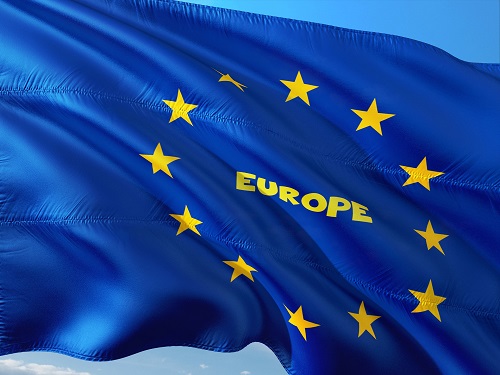
History’s worst tyrannies began as attempts to create utopia. This longing to inaugurate the heavenly kingdom on earth – to “immanentize the eschaton,” in William F. Buckley Jr.’s memorable phrase – empowers politicians who promise peace and prosperity in exchange for power. The Brexit vote shattered one such imitation kingdom, according to Stephen F. Copp in an insightful and scholarly new essay for the Religion & Liberty Transatlantic website.
“Brexit has profound implications for those who care about religion and liberty,” he writes.
In a sweeping historical and theological essay Copp, an associate professor of law at Bournemouth University in the UK, traces the history of failed utopias. He clearly distinguishes how human nature as revealed in the Western, Judeo-Christian tradition has thwarted would-be utopias from ancient Babylon, to the Soviet Union (with a nod to Yuri Slezkine’s new book House of Government), to Nazi Germany. These plans inevitably concentrate power and decision-making powers into the hands of a distant few who increasingly compel others to obey their will.
One of the distinctive facets of human nature standing in the way of collectivist utopian schemes is free will – which, Copp writes, is deeply rooted in economics:
Taking a key issue in utopianism – poverty – the Biblical framework includes respect for human dignity, property rights, and the fulfilment of promises. It provides a first-rate model for how prosperity can be generated but nonetheless makes relieving poverty a matter of individual conscience. (Compare Matt. 26:10-12 with 19:21.) Christian society is not an abstract, top-down vision of a perfect world ultimately based on compulsion, but one of transformed individual choices made within a framework of the rule of law, recognising the imperfection of the world.
The EU, he argues, has fallen prey to self-aggrandizing views: that the EU political union generated all European peace and prosperity into existence and, through an “ever-closer union,” can will them to continue. By blotting out Christianity in its House of European History, the supranational body implies that Europe is more indebted to Brussels than Bethlehem. The UK vote to leave the EU shatters that utopia, Copp writes.
In “God, Brexit, and EUtopia,” the first article of a two-part series, Copp explores “how Judeo-Christian theology resolves the clash between the utopian dreams for the EU and UK national self-determination, and sets out the basis for a non-utopian Christian vision of Europe.”
The EU’s self-image, he writes, “is an honourable vision based on sincere beliefs.”
The key protagonists of the early European project in the 1950’s included some no doubt who shared an explicit moral/religious vision for its future. As Nick Spencer of the British think tank Theos has observed, they were overwhelmingly Catholics from Christian Democrat parties. Frank Furedi’s Populism and the European Culture Wars (Abingdon: Routledge, 2018) identifies several important statements by key figures in the history of the EU who sought to put Christianity at the heart of the European vision. For example, Robert Schuman in 1958 justified a democratic model of governance that was “deeply rooted in Christian basic values,” whilst Jacques Delors in 2011 recognised the major role of Catholicism and Christianity in Europe’s constitution (p. 14).
However, the EU first separated and then placed into opposition the historic moral values of the West from a nebulous category of “European values.”
Furedi identifies how dramatic the change from that earlier vision has been. Specifically, he argues that in the run up to a 2012 European Parliament debate, policymakers portrayed the new Hungarian Constitution’s references to its national and Christian traditions as dangerous (p. 12). Guy Verhofstadt, noteworthy for his antagonism as the European Parliament’s lead Brexit negotiator, demanded a report be drawn up to investigate whether there was a breach of “our values.” Others insisted that Christianity was alien to the EU’s values. One French MEP went so far as to declare that “European values are not Christian values.”
What are these European values? Copp makes a forceful case that, as propounded by EU officials, they – and the institution they reflect – are vacuous. In this he writes, he is following Margaret Thatcher who “concluded it was empty. If empty, it is a vacuum which has yet to be filled – and history sets dangerous precedents for this.”
Copp’s immaculately documented and well-reasoned article brings a new depth to the ongoing Brexit negotiations. In this light, they are not merely wrangling over a “divorce bill,” the Irish border, or post-Brexit trade conditions, but over whether human nature is perfectible and whether an entire continent of fallen creature can be regimented into this new vision from afar.
(Photo credit: RonnyK. Public Domain.)

